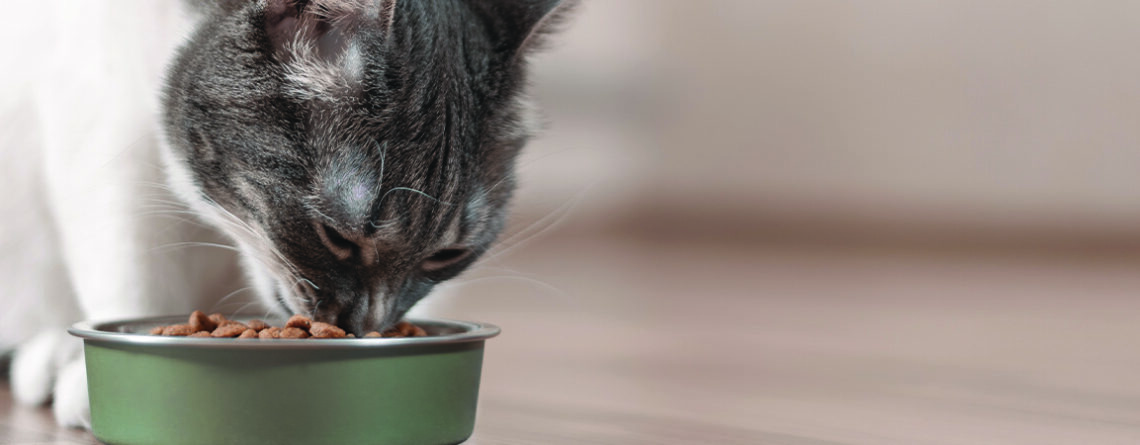What Should I feed My Cat?
What Should I Feed My Cat?
I often get asked what is the best cat food so in this blog post, I’m going to help you understand the differences in your cat’s different life-stages, and the things you should consider when choosing the best food for your cat.
Your cat could live for up to 25 years so it’s important that as your cat advances throughout her life-stages that her diet is adjusted to suit her varying nutritional needs. There is a wide range of cat food options available, each especially developed to cater for specific breeds, specific ages, activity levels or special dietary requirements.
Important Facts About Your Cat’s Dietary Needs
- Cats are carnivores which means that the only eat meat; so, it is important that their diet includes a high content of protein. A vegetarian diet for your cat could cause blindness.
- Cats are lactose intolerant so they should always have access to fresh, clean water, but never milk.
- Kidney problems are prevalent in cats, particularly as they enter their senior years. A prescription renal diet may be needed for your older cat.
- A high-protein, low-carbohydrate diet is needed to help prevent diabetes in cats, a common illness which can be exasperated by obesity

Carol Doyle, BSc VN DVM
Carol DoyIe is a small pet veterinarian in a practice in Ashbourne, Co. Meath and is the human companion to her cats, Nala and Donal, two horses - Indie and Bella, and her dog Phoebe.
As a guest blogger and advisor, Carol shares her professional advice with pet owners, answering many of the questions that she gets asked regularly in-clinic.
Life Stages & How They Affect Your Cat’s Dietary Needs
Kittens (0 – 6 Months)
Kittens should be weaned from 8 weeks, moving from a diet of their mother’s milk to solid foods. Choose a food that has been specifically developed to support the development needs of your growing kitten.
Until the age of six months, your kitten will need feeding a regular intervals, three to four times a day. To ensure your kitten develops at her optimal rate, keep to a regular feeding routine and weigh your kitten’s portions to the recommended feeding guide of your chosen food. This will help ensure your kitten grows at a steady pace, without gaining excess weight.
Junior Adult (6 Months – 2 Years)
From about six months of age, your kitten enter her junior years, which in human equivalent terms will be 12-24 years of age. In this time your kitten will reach full maturity and you may decide to have her spayed. Neutering is recognized as being a stimulant for unwanted weight gain, so adjusting your cat’s diet to a ‘neutered’ formula may be necessary.
Typically you will move your cat from a kitten to and adult formula food at 12 months. The food brand you are feeding as a kitten will probably have an adult food variation, or Petmania’s pet care advisors can help you find the best food for your growing cat.
Prime Adult Cat (2-7 years)
At the age of two years, a review of your cat’s diet is probably recommended. At this stage your cat will be entering her ‘prime’ years but particular dietary needs may develop depending on your cat’s individual life style. Special diets are available for cats who may have particular dietary needs, such has hairball control, urinary care, weight control, indoor or outdoor lifestyle.
Constantly changing food will cause your cat to get an upset tummy, so I would recommend finding a food that suits your cat’s requirements and stick with it.
If your cat lives outdoors, they will need a diet with a higher fat and protein content, to provide more energy, as outdoor cats tend to be more active.

Mature Cats (7+ years)
By the time your cat reaches the age of seven, she will now have reached the human equivalent of 44 years old. While you might not think it, she will now be entering her ‘mature years’ and her body will start aging. You may notice that she’s not as active as she used to be, so adjusting her daily diet and calorie intake is recommended to prevent weight gain at this stage in her life.
When choosing the best food for your mature cat, I would recommend selecting on that has been especially formulated to cater for the dietary needs of an older cat. These will be developed to prevent weight gain, boost the immune system and aid your cats joints and mobility as she ages.
Senior & Geriatric Cats (11+ years)
In her senior years, your cat’s senses will begin to deteriorate, which can lead to a loss of appetite. At this stage, move from a dry food formula to a wet cat food, or a dry food with a wet centre can make your cat’s mealtimes more appetizing and palatable for your cat. A diet change in her senior years can help prevent weight loss and muscle mass decline.
While weight loss is a concern for senior cats, reduced mobility and activity levels can increase the risk of weight gain too. Weight gain in your senior cat can increase the risks of illness such as diabetes or kidney problems. There are a wide range of food available to support your cat in her later years, and the team at Petmania are available to help you choose the best food for your senior cat.
If you have any concerns about your cat’s health at anytime, a visit to your vet is recommended.
Weight & Body Condition
Monitoring your cat’s weight and body condition score will help you to track her growth and development and guide you in knowing if / when a change in food or activity is required.
Monthly weight checks are recommended for your kitten while she is growing, after which your adult cat should have a weight check at least once every three months. By regularly monitoring your cat’s weight you can quickly identify if there is any cause for concern, and allow you to take early action to prevent weight related problems from developing.


